Wireless Electric Vehicle Charging Points
- BMW, Mercedes and Nissan all have vehicles with wireless charging fitted
- The UK trials wireless charging technology on electric vehicles
- Charge while you drive technology is starting to look possible
Electric vehicles are already a great investment.
They have incredible range, with electric vehicles going as far as 395 miles. They’re considerably cheaper to run than petrol, even during the energy crisis.
Plus, if you’re able to purchase a home charging station, you should be able to profit from the government’s Electric Vehicle Homecharge Scheme. This could save you up to £350 on the station’s initial cost.
With wireless EV charging becoming a reality, EV technology continues to ensure you can go further for less.
This article goes into wireless electric vehicle charging technology and how it is shaping the future of modern transportation.
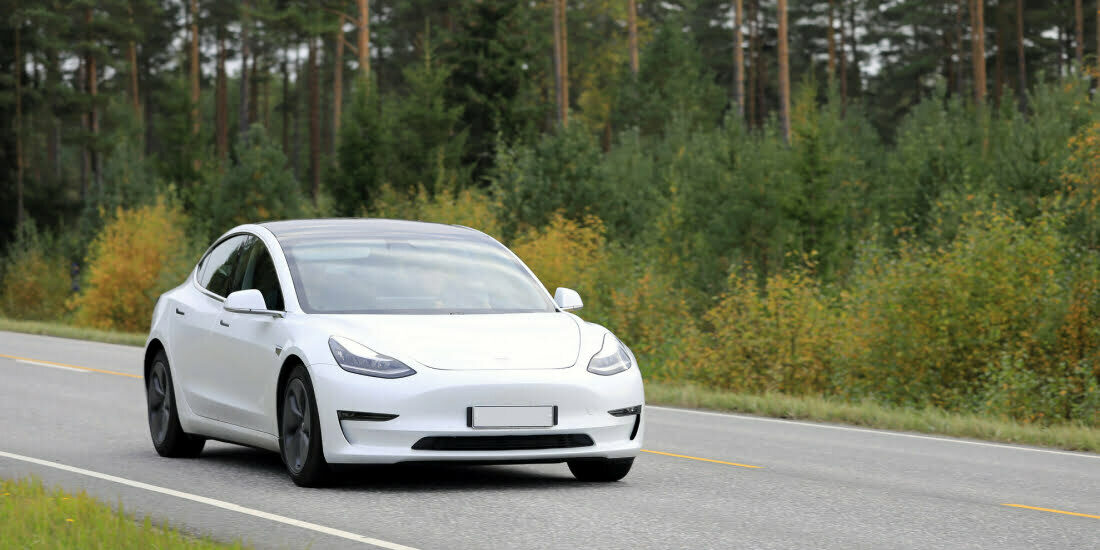
What's On This Page?
Click the links below and head straight to a specific section of the article.
- What Is Wireless EV Charging?
- How Does Wireless EV Charging Work?
- Can You Charge Your Vehicle While Driving?
- What Does Wireless EV Charging Mean For The Future Of Electric Vehicles
- What EVs Can Be Charged Wirelessly?
- Electric Vehicle Home Charger Installation
- Electric Vehicle Charging at Public Stations
- Electric Vehicle Range
- Summary
What Is Wireless EV Charging?
Wireless charging is becoming quite common with devices like smartphones. Although most people still use a cable to charge them, you now see certain places have specific surfaces that can charge a phone when coming into contact with no wire required.
The same technique is being applied to electric vehicles. Instead of using the charging cables on an EV, some places are trialling wireless charging stations where certain cars can charge just by moving over them.
How Does Wireless EV Charging Work?
The overall science behind it can be overwhelming but luckily Autocar has condensed down the whole process.
According to the site, the wireless charging station consists of a magnetic field in the charging pad that detects the same frequency in the electric vehicle receiver and triggers the charging process.
The stations have been trialled on a taxi rank in the UK, where the electric cars would shuffle forward and charge at a rate of 11kW simultaneously.
They’re safe and don’t produce any kind of radiation. These stations will not only lower petrol consumption but also reduce room required for physical charging spaces.
Can You Charge Your Vehicle While Driving?
This is certainly the question that all EV drivers are wondering as it will inevitably be the future of transportation.
It would require a paved road that is continuously powered by these magnetic fields so that the electric vehicle is permanently charging while driving and ultimately never having to stop to refuel.
Although this hasn’t quite yet been achieved, there are places such as Sweden that are trialling this new type of electric road hoping to completely change the future of driving.
What Does Wireless EV Charging Mean For The Future Of Electric Vehicles
Implementing charging roads will lower fuel consumption, free up space and help electric cars become more affordable.
The significant part of the electric vehicle is the car’s battery, which needs to be big enough to store enough electricity to keep the car running for a few hours.
It is therefore the most expensive aspect but if charging roads are introduced, it will reduce the size of the battery needed and lower the cost of electric cars making them more affordable.
What EVs Can Be Charged Wirelessly?
Because this is still new technology, the majority of electric vehicles won’t have wireless charge technology fitted. It can however be easily fitted into most electric vehicles, so after a quick fix you’ll be able to upgrade to wireless charging.
There are a few car models out there that can charge wirelessly, in fact BMW claims to be the first manufacturer that included this technology.
Both Mercedes and Nissan also offer wireless service so it’s likely that soon every electric car will be fitted with wireless charging abilities.
Electric Vehicle Home Charger Installation
While wireless charging is still in its early stages. Wired electric home charging is very much a real thing.
Beyond the convenience and peace of mind charging your electric vehicle at home offers, you’ll also find an EV home charger is cheaper, faster and safer. Attached to the wall in a minimal, sleek design, growing use of electric cars means there’s an ever widening range of EV home chargers to buy. Clearly the size and power of your electric vehicle means an ordinary electric socket is not going to work.
Able to charge a standard-sized car in around 6 hours if you choose fast charging (rapid charging is even quicker but has its drawbacks), EV home chargers make electric vehicles a practical solution for ordinary use.
Plug your electric car into the EV charge point whilst it sits on the drive and your electric vehicle is always ready to use. If you qualify, it’s even possible to get up to £350 off the cost off your charge point.
Electric Vehicle Charging at Public Stations
If you don't invest in a home charging station which we strongly advise you do. There are, of course, public electric vehicle charging stations, but these are more expensive to operate.
According to Zap-Map, there are currently 53,029 public charging points in the UK. That’s 44,664 more than petrol stations operating across the UK last year, according to data from Statista.
A small percentage of these charging stations are free, but the majority require you to pay a considerable amount and much more than you would pay at home. Even after paying a subscription fee, residential electricity will end up being cheaper.
If you do require one, the process is relatively simple, you’ll just need to check your car’s connection type, and then find a nearby charging station.
Zap-Map is a handy tool that allows you to see all the charging stations across the UK.
You can do this by entering your connection type and the charge speed you require and you can access all the charging spots nearby.
A good tip is to see if there are any free stations, as it might be worth driving that little bit further out to save money.
Electric Vehicle Range
It's also worth noting the range in which electric vehicles can go on a full charge. This can range anywhere between 60 to 379 miles. The range you decide should reflect your lifestyle and what you want from your new car. Is it just for trips to the supermarket and visiting friends? Or for holidays and extensive trips? It's also worth figuring out your budget.
If you want a smaller, relatively cheap vehicle for cruising around the city then you might want to invest in the Renault Twizy (62-mile range) at £12,000 or Smart’s Fortwo (91-mile range) or Forfour (87-mile range), which both sell for just over £20,000.
You wouldn’t be able to drive from London to Bristol with any of these models on a full battery but if you don’t need to go far, then they're perfectly suitable.
If you’re looking for a vehicle with a larger range, there are plenty of cars to choose from. See a list of the longest range EVs in the interactive graph below. This is according to data gathered by NimbleFins.
In fact there is a list of eligible vehicles that qualify for the government’s plug-in grant, which dealerships and manufacturers will use to knock around £3,000 off a car’s price. The list contains 30 models which have an average range of 198 miles.
There are a variety of fantastic offerings. From Volkswagen to Vauxhall, Tesla to Skoda, the big brands have entered the electric market with cars guaranteed to make you reach record distances.
Summary
With wireless charging technology slowly being introduced, it’s definitely an interesting and innovative time for electric vehicles. Wireless charging is an efficient way to significantly cut down the need to stop and refuel and reduce the space required for physical charging stations. And if wireless charging technology evolves the way it’s projected to, it will easily become the future of transportation.
However, while wireless electric charging technology isn't quite there yet. You can invest in a home charging station that will save you a considerable amount compared to public charging stations. If you'd like to know more, you can enter a few details and one of our professionals will be in touch.
Related articles
View all EV charging articles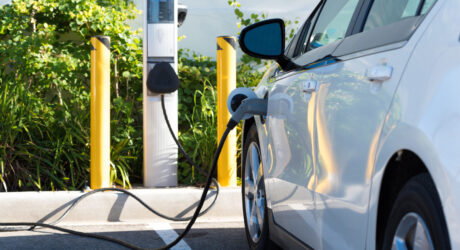
A Guide to Electric Car Batteries

EV Home Charger Installation Guide: How to Charge an EV at Home
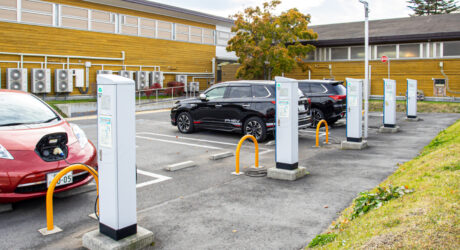
OZEV Grant: What Is It and Am I Eligible?
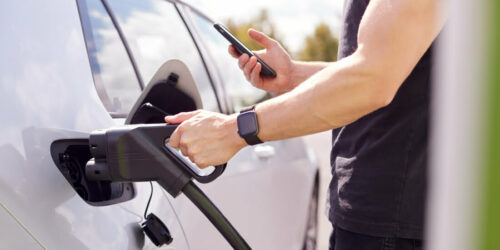
The Best Apps for Finding EV Charging Stations
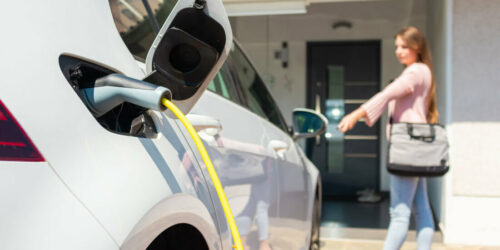
Electric Car Home Charging Stations: The Top Ten EV Chargers for Your Home

Should I Buy a Used Electric Car?
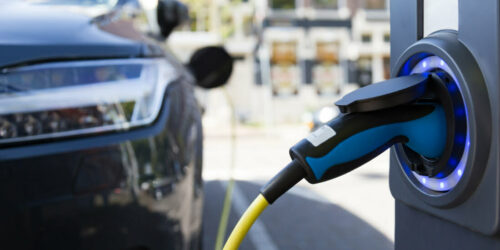
Electric Vehicle Range







